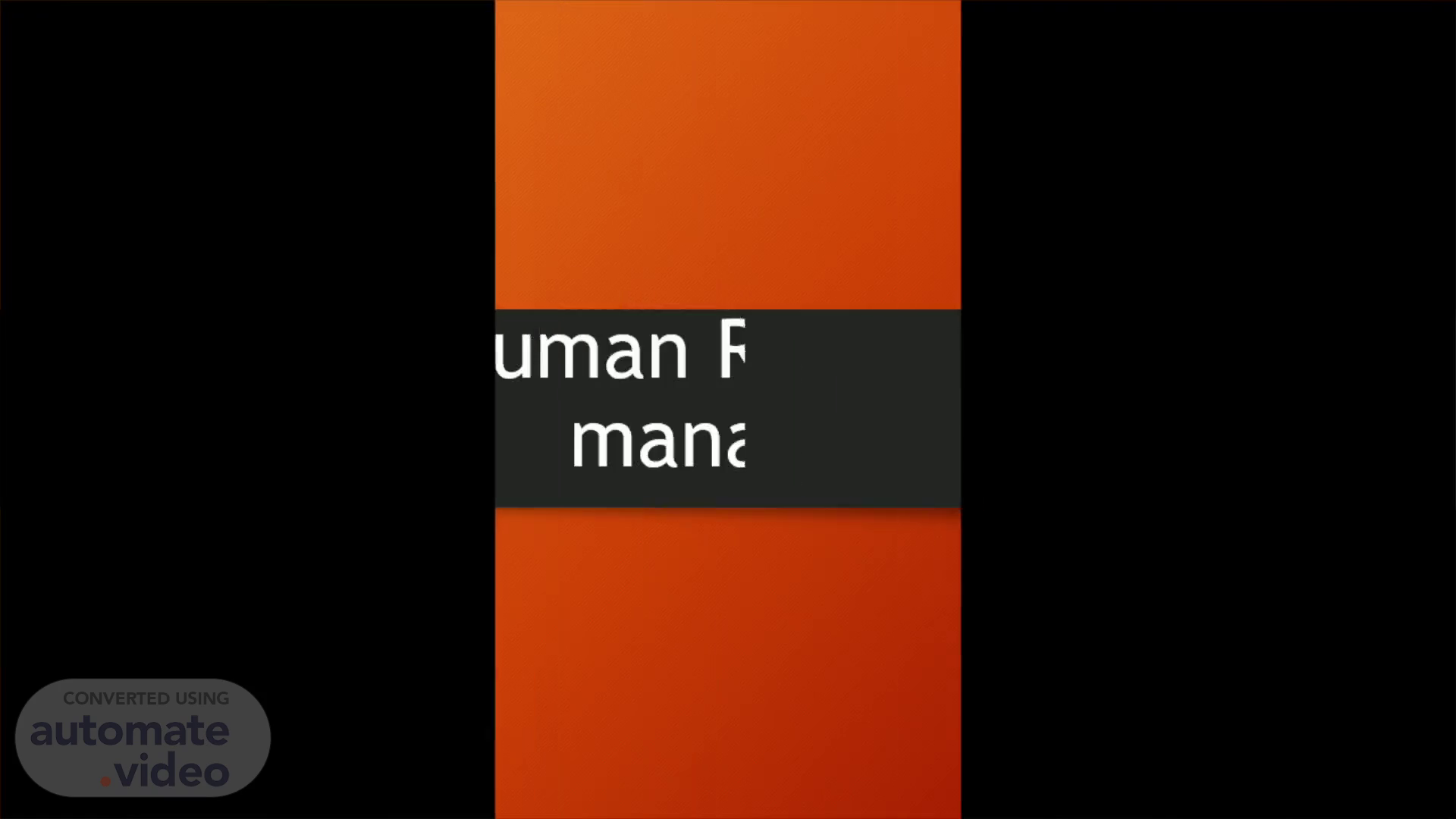
Human Resource management
Scene 1 (0s)
Human Resource management.
Scene 2 (7s)
[Audio] Human resource management is organizing, coordinating, and managing employees within an organization to carry out an organization's mission, vision, and goals. This includes recruiting, hiring, training, compensating, retaining, and motivating employees.
Scene 3 (26s)
[Audio] Roles of Human resource Management are Select , train ,motivate ,keep..
Scene 4 (36s)
[Audio] Functions of Human Resource are Recruitment and orientation Training and Development Compensation and benefits Performance Appraisal Employee Motivation Career development Conducting job Analysis.
Scene 6 (1m 7s)
[Audio] Conducting job analysis Job analysis is a systematic and detailed examination of jobs. It is a procedure for determining the duties and skill requirements of a job and the kind of person who should be hired for it..
Scene 7 (1m 23s)
[Audio] Recruitment The HR department is familiar with the kind of candidate required to fill a company position. Hence, they are given the task of selecting a qualified person for the job. However, the HR department must understand that recruitment is costly since the right employee can revitalize a company. But a wrong one can upend the companies operations.
Scene 8 (1m 50s)
[Audio] Training and development Despite an employee being a new hire or an existing one, they will require regular skill-building sessions for career development to be productive and meet their personal and professional goals. It is the responsibility of the HR department to oversee the training needs of the employee.
Scene 9 (2m 11s)
[Audio] Compensation and benefits refers to compensation/salary and other monetary and non-monetary benefits passed on by a firm to its employees. Compensation and benefits is an important aspect of HRM as it helps to keep the workforce motivated. It helps give benefits to employees based on their performance and actions.
Scene 10 (2m 34s)
[Audio] performance of a specific situation in contrast to the aim and yet executed. In Human Resource, performance analysis can help to review an employee's contribution towards a project or assignment, which they allotted him or her..
Scene 11 (2m 50s)
[Audio] The ultimate goal of every organisation is to increase its productivity. Hence, motivation of employees at all levels is the most critical function of management. Motivated employee produce a goal directed behavior with his own generator. Outside simulation is not needed to such employee again and again.
Scene 12 (3m 13s)
[Audio] An individual's personal initiatives that they pursue for their career development are primarily concerned with their personal values, goals, interests, and the path required to fulfill these desires. A degree of control and sense of urgency over a personal career development path can require an individual to pursue additional education or training initiatives to align with their goals.
Scene 13 (3m 36s)
[Audio] Thankyou. Thankyou.